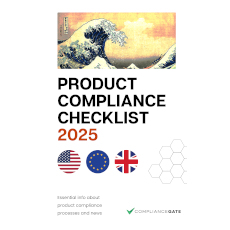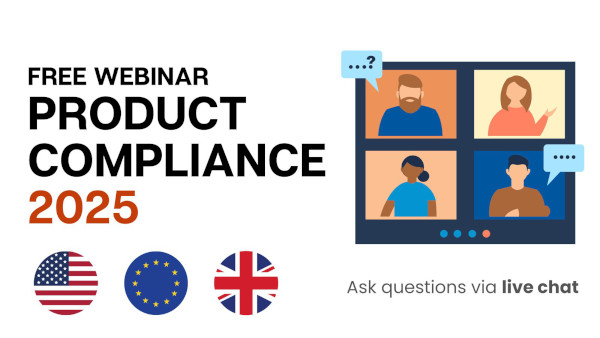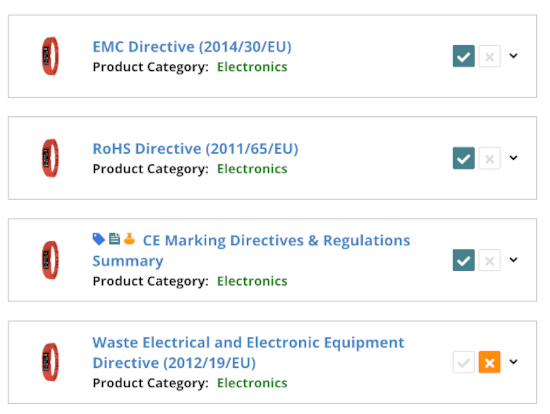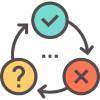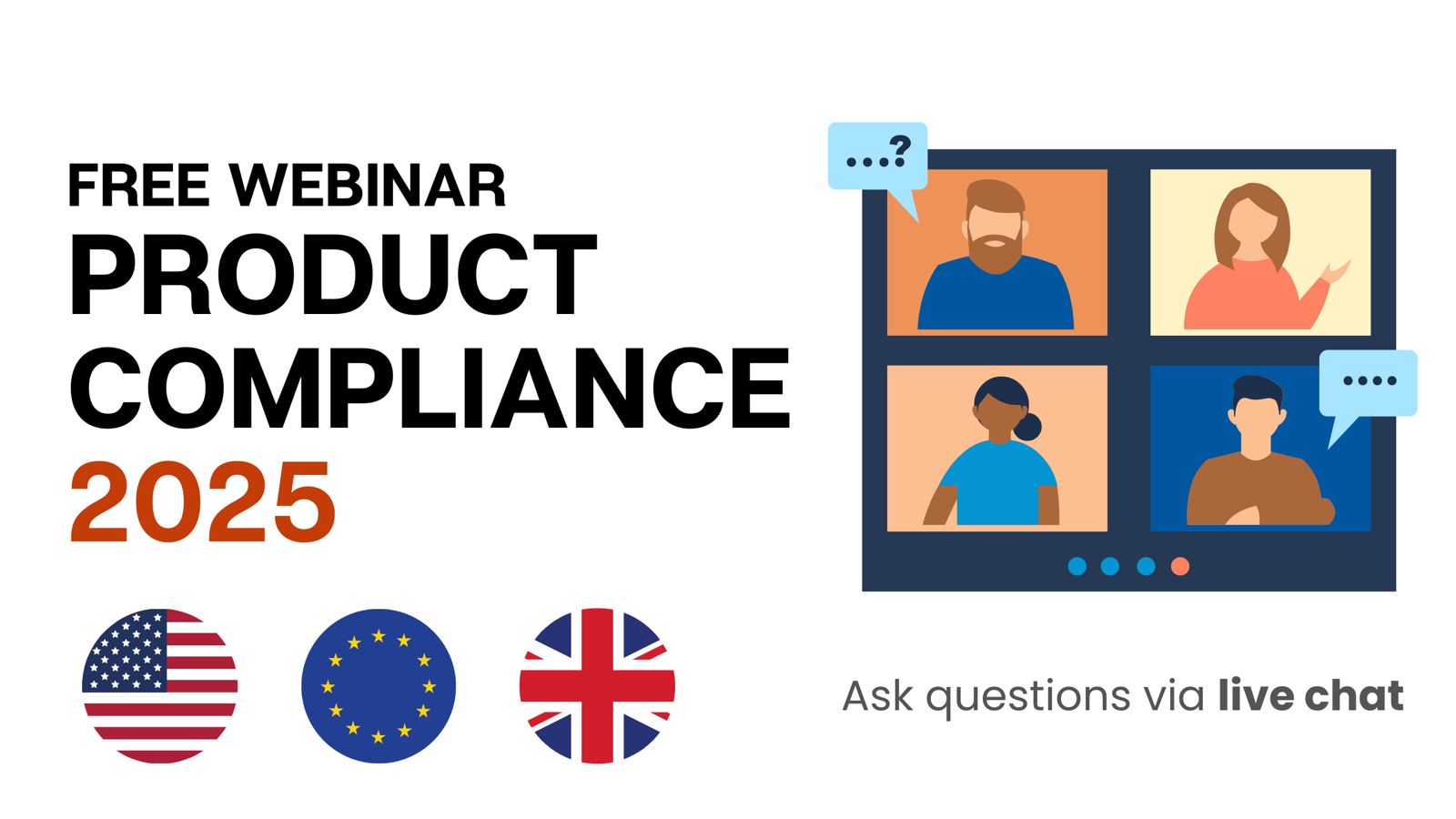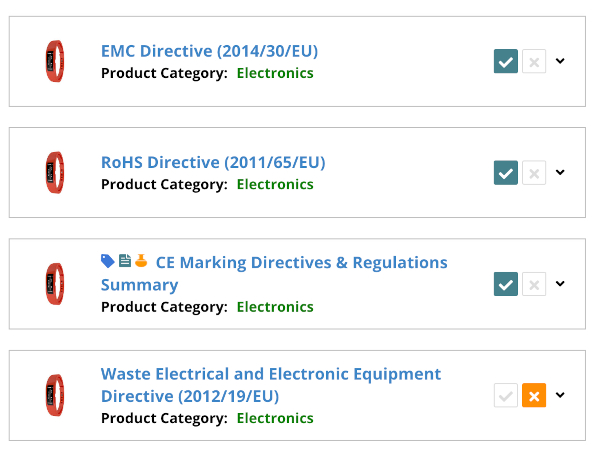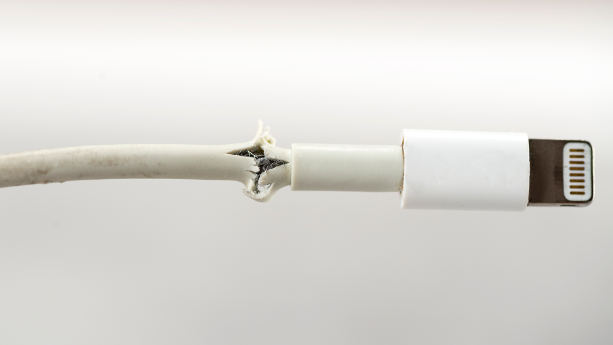
Product testing and certification may seem overly expensive and bothersome for some importers. That said, selling unsafe and non-compliant products is not only a severe risk for the consumers in your target market but also something that can massively backfire on your own business.
Keep reading, and learn what can happen if you fail to ensure compliance with all relevant safety standards, certification requirements, and labeling rules.
Content Overview

FREE CONSULTATION CALL (US, EU & UK)
- Request a free 30-minute call with Ivan Malloci to learn how we can help you with:
- Find product requirements
- Certification and labeling
- Lab testing
What is the difference between unsafe and non-compliant products?
An unsafe product can potentially cause harm to the consumer. For example, this may include baby feeding bottles containing phthalates, or poorly designed phone chargers.
Non-compliant products are often unsafe, but not by definition. Product compliance involves more than safety, as it also covers labeling, documentation, and registration. As such, a ‘safe product’ lacking the correct labeling and documentation may also be subject to recalls, and other measures.
1. Your shipment can be rejected by the customs authorities
Customs authorities around the world don’t have the resources to check if every single shipment of the product is compliant. But, they do check some shipments and have the right to reject incoming shipments on the following grounds:
- Incorrectly labeled
- Lacking mandatory product compliance documents (e.g. Declaration of Conformity)
- Lacking test reports
Further, some customs authorities also have testing equipment. For example, US customs can check if your product contains certain restricted substances upon arrival. I can’t say how common this is, but it does send the signal that they take product safety seriously.
This is not only a risk in the United States though. I’m aware of a few cases in which the German customs authorities seized incoming product sample parcels due to missing CE marks.
2. Your products may be subject to a forced recall
Product compliance is not only about ‘getting past’ the customs check, assuming there even is one. Market surveillance authorities, such as the U.S. Consumer Product Safety Commission (CPSC) – not to forget their counterparts in the European Union – can contact you weeks, months, or even years after the products were imported and sold.
Forced recalls are issued when products are deemed to be non-compliant and unsafe, which essentially means that you need to organize the return of all unsafe products – and offer refunds or replacements.
Here are a few scenarios when your product may be subject to recall:
a. Your products are reported to the relevant authorities as non-compliant and/or generally unsafe
b. Your product is subject to testing by market surveillance authorities (in some countries they buy products from various online stores and send them for safety testing)
3. Market surveillance authorities may contact you at any time to request all mandatory product compliance documents (e.g. test reports, product certificates, and declaration of conformity). Failing to provide the required documents can result in a forced recall.
4. Your products are incorrectly labeled (e.g. lacking a CPSIA tracking label, country of origin label, or CE mark).
I suggest you take a look at the CPSC product recalls page to put things into perspective.
3. You may be fined
A few years ago I dealt with a case involving a company caught selling non-compliant LED lighting. As they failed to provide the necessary Declaration of Conformity, they were fined 5000 EUR.
It’s worth mentioning that they did actually have valid test reports, which certified that the products they sold were in fact safe. That said, test reports are often not enough. In this case, and many others, what seemed to be a minor formality (e.g. to issue a Declaration of Conformity) cost them dearly.
4. You’re liable for injuries and property damages
What’s possibly worse than fines and a forced recall? Well, imagine if your product causes fire, injury, or even death. That’s, unfortunately, something that happens every day. Keep in mind that you, as an importer, is liable in case something happens.
Further, product liability insurance may not cover you if you have not followed the requirements set by applicable product regulations. It’s in everyone’s interest that products sold on the marketplace are tested, compliant, and safe. Importers act as gatekeepers and must take this role seriously.
It should also be mentioned that this responsibility cannot be shifted to foreign suppliers. It’s easy to think that “the supplier should know best”, but that’s rarely the case.
5. Amazon.com may reject your product
Amazon is getting increasingly strict when it comes to product compliance. Submitting test reports and compliance documents is required when selling toys, children’s products, power banks, and other items on Amazon. That said, we’ve noticed that Amazon is also stepping up compliance checks for products that are generally not perceived as high-risk, such as jewelry.
Failing to submit mandatory test reports and certificates (e.g. Children’s Product Certificates) is likely to result in your product being suspended.
Amazon is likely to become even more strict in the future as they are facing pressure to ensure that all products sold on their marketplace are compliant and safe.
6. Your product may not even leave the factory
The EU includes freight forwarders, fulfillment centers, and other economic operators in the supply chain to its definition of responsible parties. In the not too distant future, shipping companies and other logistics companies may refuse to handle your products unless you can provide all required test reports and other compliance documents.
This makes sense, as companies are generally more efficient than the government when it comes to ‘policing’ the supply chain.
7. You’ll get off scot-free
The sad truth is that many sellers ship unsafe and non-compliant products for years without ever being bothered by the authorities, logistics companies, or marketplace operators. This particularly true when it comes to foreign cross-border e-commerce sellers – who are out of reach.
In fact, such sellers can even profit from selling non-compliant products, as they can skip on costly engineering and lab testing. That difference is significant, to the point that it can undercut and possibly even drive their competition out of business.
In short, lack of product compliance enforcement – targeting foreign cross-border sellers in particular – is not only allowing the influx of unsafe products but also creating a strong incentive to completely disregard product safety.
That said, things are moving in the right direction.
Amazon is stepping compliance checks. The CPSC is discussing making electronic filings mandatory.
Further, as of July 2021, the European Union requires cross-border sellers to have a European Authorised Representative.


